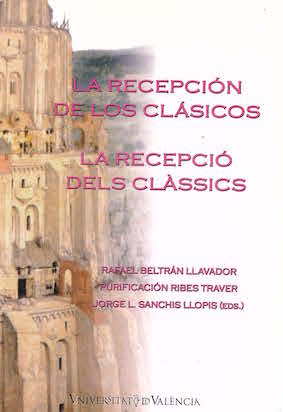Pervivències del mite antic a la cançó demòtica grega: possibilitats i exemples
DOI:
https://doi.org/10.7203/qf-elit.v10i0.5098Paraules clau:
Mite, Pervivències, Cançó demòtica grega, Literatura popular neogrega Resum
Resum
Al gènere literari neogrec conegut com a "dhmotikov tragouvdi", “cançó demòtica”, pertanyen una gran quantitat de cants populars sense autor conegut, d’una extensió mitjana de trenta versos i en línies generals narratius, difícilment associables a un període històric concret; tot i que el seu darrer període de floriment van ser els ss. XVII i sobretot XVIII, podem entendre que les arrels del gènere es remunten a l’Antiguitat. Partint d’aquesta premisa, hom ha vist en determinades cançons demòtiques –les anomenades "paralogev"– traces dels mites grecs antics; el present article intenta un acostament al gènere des d’aquest punt de vista, una reflexió sobre el caràcter literari del mite grec, i de la seua pervivència o revifament, i ofereix una sèrie d’exemples amb les corresponents traduccions.
 Descàrregues
Descàrregues
Descàrregues
Publicades
Com citar
-
Resum283
-
PDF (Español)106
Número
Secció
Llicència
 Este obra está bajo una licencia de Creative Commons Reconocimiento-NoComercial-SinObraDerivada 4.0 Internacional.
Este obra está bajo una licencia de Creative Commons Reconocimiento-NoComercial-SinObraDerivada 4.0 Internacional.
Tots els documents inclosos a OJS són d'accés lliure i propietat dels seus autors i/o institucions editores, i per tant, qualsevol acte de reproducció, comercialització, comunicació pública o transformació total o parcial necessita el consentiment exprés i escrit d'aquests.
________
Authors who publish with this journal agree to the following terms:
- Authors retain copyright and grant the journal right of first publication with the work simultaneously licensed under a Creative Commons Attribution License that allows others to share the work with an acknowledgement of the work's authorship and initial publication in this journal.
- Authors are able to enter into separate, additional contractual arrangements for the non-exclusive distribution of the journal's published version of the work (e.g., post it to an institutional repository or publish it in a book), with an acknowledgement of its initial publication in this journal.
- Authors are permitted and encouraged to post their work online (e.g., in institutional repositories or on their website) prior to and during the submission process, as it can lead to productive exchanges, as well as earlier and greater citation of published work (See The Effect of Open Access).




